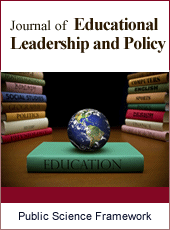Journal of Educational Leadership and Policy
Articles Information
Journal of Educational Leadership and Policy, Vol.2, No.1, Feb. 2017, Pub. Date: Jun. 15, 2017
A Comparative Analysis of Capstone Courses in Criminal Justice Departments of the Southeastern United States
Pages: 1-7 Views: 2331 Downloads: 682
[01]
Michael T. Eskey, Criminal Justice Administration, Park University, Parkville, Missouri, USA.
Capstone courses are designed to give students the opportunity to apply the knowledge they have acquired through an education program, through the summarization of course program learning objectives. This application is important for application to real-world situations, employment, or future education. The current paper addresses the responses of criminal justice educators responding to the usage of various types of capstone courses in their program, to include the senior thesis, research papers, internships, portfolios, and/or other major projects in this major course(s). These represent a culmination of undergraduate criminal justice study based on survey responses of criminal justice instructors from numerous colleges and universities in the Southeast region of the United States.
Capstone, Internships, Criminal Justice, Thesis
[01]
AASL Senior/Capstone Project Task Force Report, (2014) retrieved August 1, 2016 at http://www.ala.org/aasl/sites/ala.org.aasl/files/content/aaslissues/advocacy/AASL_ExecSummary_SeniorCapstoneProjectTF_2014.pdf
[02]
Brownell, J. E. And L. E. Swaner (2010) “Five High-Impact Practices: Research on Learning Outcome s, Completion, and Quality. Washington, DC: Association of American Colleges and Universities.
[03]
Carlson, J. L., R. L. Cohn, and D. D. Ramsey (2002) “Implementing Hansen’s Proficiencies.” Journal of Economic Education 33 (2): 180–91.
[04]
Gardner, J. N., G. Van der Veer, and Associates (1998) The Senior Year Experience: Facilitating Integration, Reflection, Closure and Transition. San Francisco: Josser-Bass.
[05]
Hauhart, Robert C. and Jon E. Grahe (2010) “The Undergraduate Capstone Course in the Social Sciences: Results from a Regional Survey.” Teaching Sociology 38 (1): 4–17.
[06]
Hunter, M. S., Keup, J. R., K inzie, J., & Maietta, H. (Eds.). (2012). The senior year: Culminating experiences and transitions. Columbia, SC: University of South Carolina, National Resource Center for the First-Year Experience and Students in Transition.
[07]
Ishiyama, John (2005) “The Structure of an Undergraduate Major and Student Learning: A Cross-institutional Study of Political Science Programs at Thirty-two Colleges and Universities.” Social Science Journal 42 (3): 359–66.
[08]
Kain, Edward L. 2007. “The Sociology Major at Institutions of Higher Learning in the United States.” Teaching Sociology 35 (1): 31–47
[09]
Padgett, R. D. and C. A. Kilgo, 2011 National Survey of Senior Capstone Experiences: Institutional-Level Data on the Culminating Experience (Research Reports on College Transitions No. 3), Columbia, SC: University of South Carolina, National Resource Center for the First-Year Experience and Students in Transition.
[10]
Park, Caroline L. (2004) “What Is the Value of Replicating Other Studies?” Research Evaluation 13 (3): 189–95.
[11]
Schermer, T., and S. Gray (2012) The Senior Capstone: Transformative Experiences in the Liberal Arts. Final Report to the Teagle Foundation.
[12]
Seeborg, M. C. (2008) “Achieving Proficiencies in Economics Capstone courses, The Journal of College Teaching & Learning,” February, 2008, 5 (2), pp. 61-73.
[13]
Siegfried, John J. (2001) “Principles for a Successful Undergraduate Economics Honors Program,” Journal of Economic Education 32 (2): 169–77.
[14]
Sum, P. E. and S. A. Light (2010) “Assessing Student Learning Outcomes and Documenting Success through a Capstone Course.” PS: Political Science and Politics 43 (3): 523–31.
[15]
Wikman, Anders (2006) “Reliability, Validity, and True Values in Surveys,” Social Indicators Research 78 (1): 85-110.

ISSN Print: Pending
ISSN Online: Pending
Current Issue:
Vol. 2, Issue 3, June Submit a Manuscript Join Editorial Board Join Reviewer Team
ISSN Online: Pending
Current Issue:
Vol. 2, Issue 3, June Submit a Manuscript Join Editorial Board Join Reviewer Team
| About This Journal |
| All Issues |
| Open Access |
| Indexing |
| Payment Information |
| Author Guidelines |
| Review Process |
| Publication Ethics |
| Editorial Board |
| Peer Reviewers |


